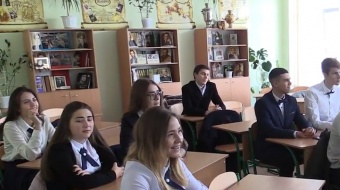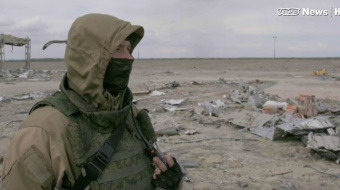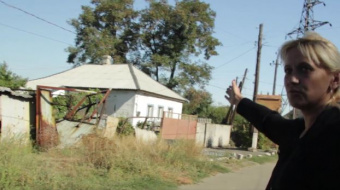Probably, this is the general plan: not to facilitate the process of internally displaced persons' adaptation to new life so that they would return home. Part 1
Probably, this is the general plan: not to facilitate the process of internally displaced persons' adaptation to new life so that they would return home. Part 1
A sociologist from Donbas reflects on problems that people who had to flee their homes due to the war face.
IDPs are accused of betraying their motherland, and in other regions of Ukraine they are called separatists who failed to stop the war.
Oksana Mykheeva, who had to move from Donetsk to Lviv after the beginning of the war explains why the majority of internally displaced persons will never return to the Donbas.
More than one million Ukrainians had to flee after the Crimea was annexed and the war in the east of Ukraine broke out. Oksana Mykheeva is a sociologist from Donetsk who has lived in Lviv for two years. She works at Ukrainian Catholic University, studies IDPs’ stories and last year she conducted a research devoted to internally displaced persons for Ukrainian Peacekeeping School. In her interview, she told us why people who had to leave their homes due to the war feel guilty when they think about those who stayed in the Donbas and when they communicate with people who are their new neighbours now.
“It has been two years since residents of occupied territories started leaving their homes. The majority of internally displaced persons are eager to return home though hostilities have not finished yet. What are the reasons for it? Have they failed to restart their lives in a new place?”
“The reasons can be different. A lot of people have elderly relatives there who do not want or cannot move to another place.
Those who had to remain on the occupied territories throughout all the conflict do not like the fact that someone is coming back. There is another division into “we” and “they”: we stayed here during the war and they moved to a safe place.
This is why an internally displaced person is in many aspects a tragic figure. On the one hand, they are called guilty in the Donbas as they betrayed their and and left. On the other hand, on the new place they are called separatists and are accused of not stopping the war or not joining the army.
I feel a bit weird when I hear some horrors about the pre-war Donbas. If a person does their best to show that he or she is not a resident of Donetsk any more this is usually a sign which shows that this person wants to show the new surrounding that he or she is one of them. When a person feels a link to the local space, their national patriotic position is strong. I lived in Donetsk for 43 years of my life and, as any other person, I have different memories about this city, but positive ones prevail. I had an interesting job, wonderful students and collegues, I still keep in touch with many of them, and no one prevented me from being the person I wanted to be. Why should I cross out 43 years of nice memories just because of two years of occupation of external origin? If you only knew what historians miss! I would like to continue my work in the State Archive of the Donetsk region where I had started systematically looking through the cases of my favourite 1920s, one by one, just before the war. I managed to find so many interesting documents there.
As for the reasons to come back, they can be different, in my opinion. Some people strive for reuniting with their families, some have nostalgic memories, they want to return home, to feel its smell, to sleep in their bed. Failure to adapt successfully plays the crucial role in making such a decision. When a person realizes that they work long hours just to be able to pay the rent and buy some food, they will not value such kind of life. If such a person returns home, they will hardly improve their material status, but at least they will live in their own flat. Thus, it is possible to understand such a behaviour”.
“In your opinion, does the state manage to build at least some strategy concerning internally displaced persons? There was a public hearing devoted to the problems of IDPs in Verkhovna Rada several months ago. Does it mean that there was not a single representative of the Luhansk and Donetsk region authorities and that no one cares about IDPs problems on the level of the state?”
“I cannot say that they forget about IDPs’ problems or do some things on purpose. Unfortunately, I do not have enough information to be absolutely sure about such things. Maybe, this is the general plan: if IDPs fail to adapt in a new place of their residentce, they will have to come back to their homes. Still, I would really like our country to take Georgia as an example. This country just built houses for internally displaced persons and this fact solved the main problem. It is practically impossible to save enough money to buy a flat with our salaries, especially if we take into account the fact that the majotiry of IDPs live, literally, on the verge of survival. If the state does not sovle this problem this means that it does not help.”
Probably, this is the general plan: not to facilitate the process of internally displaced persons' adaptation to new life so that they would return home. Part 2
New service "Explain Ukraine". This is a daily mailout of three articles which were written about the situation in the Donbas by Donbas journalists and translated into English. Honest vision of people who work in the field is unbiased and fresh which is crucial in the world which is full of desinformation and propaganda. We try to share this vision in out daily mailout. You can subscribe here.














